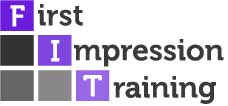I recently had coffee with a girlfriend who I hadn’t seen for a long while – and told her about my exciting venture with my well-being practice NLP4Teens and my plans to grow the practice in a few years time (when I reach THAT age and begin to think of my ‘pretirement’ from my training business, First Impression Training Ltd). I want to start developing specific workshops and therapeutic 1:1 sessions for schools and students, focusing on the key issues and concerns that schools and their pupils face every day, both in AND out of the school setting.
My friend was intrigued and fascinated to find out more about my plans for the future of NLP4Teens and we spent the next 3 hours (and several coffees in the mix) talking about ‘all things school’, both as it was for us back then and as it appears to be now. I shared with her how I planned to support students, teachers AND support staff through my NLP (Neuro Linguistic Programming) and hypnotherapy teachings, to ensure a more positive school experience – both physically and emotionally for students – and how I could help teaching staff engage more effectively with their pupils to ensure an effective outcome for all, by applying simple NLP strategies in their daily interactions with others.
Several times during our lengthy chat, my friend would suddenly become very quiet and appear distant, her eyes becoming glassy with sadness. I wondered what I’d said that had caused her so much upset and then she started, from the very beginning – reciting the words, reliving the dreadful deeds that were bestowed upon her from as young as 5 years of age. She suffered daily taunts about being a clever-clogs, talking posh, being good at running, wearing stupid shoes, having a stutter and being small. It was relentless…and the bullying became worse and worse as she grew older and progressed to secondary school.
I was utterly flabbergasted and most distressed to hear her horrid story, because to look at her now, you just couldn’t possibly have known she’d suffered that kind of torment for all those years.
I’m going to fast-forward over 30 years now, because I want you to know that her story really does have a happy ending! Despite being able to relive the horror of her bullying in technicolour that day over coffee, as if she were right back there in the classroom being 5 years of age again, she is an incredibly successful, dynamic businesswoman, mother, wife and friend, who is enjoying life to the full at the young age of 50 something!
My friend’s story is by no means unique or even unusual. Interestingly, there are many success stories, both locally and nationally about people who were victims of bullying during their school years and who have gone on to enjoy fulfilling and highly successful lives, by putting the past behind them – some even finding fame and fortune! Jesse J has certainly turned the tables on her tormentors in recent years, having been the victim of malicious and ugly bullying about her ‘bugs bunny’ teeth during her school years. Her hit single “Who’s Laughing Now” goes into detail about her experiences in the school playground and how the bullying impacted her and how music helped her to find a voice and speak out about bullying.
What a good example she is – of how we can rise above the torment and apportion responsibility where it belongs, with the aggressor. And with her incredible performance at the Olympic Closing Ceremony back in August 2012, I guess we were left in no doubt who’s laughing now! Jesse J isn’t alone either – it’s surprising to learn that all sorts of famous people who are now very successful ‘grown-ups’ were bullied and tormented during their school years. These artists include the singer Phil Collins; actor Harrison Ford; singer Charlotte Church; Olympic swimmer Michael Phelps; singer Justin Timberlake; Polar explorer Sir Ranulph Fiennes; actor Mel Gibson; Tom Cruise and even the ‘force to be reckoned with’ that is Rhianna!
I suppose that’s proof that bullying is indiscriminate and definitely doesn’t define your future, even if some of us do allow it to taint our past! As the saying goes “what doesn’t kill you, makes you stronger” and it most certainly appears to have done that for the likes of my friend and all these great artists mentioned above!
I was clearly very fortunate growing up – in my school life at least – because I can’t recall a single instance where I, nor any of my school friends were bullied. While it was many years ago that I left school (and I do appreciate I tend to look at my past through rose-coloured spectacles), I actually can’t recall anyone being bullied in my primary, middle or secondary school! I had a wonderful group of friends and although there were definitely a few not-so-nice girls in my not-so-nice secondary school in a not-so-nice part of London, I also don’t recall there being any bullies either.
Perhaps I decided even back then, that I would choose to look for the good in everyone – to accept everyone as unique, gifted and talented in their own way and celebrate the only thing we human beings have in common – we are all different! I guess that was (and still is) a rather naïve view to take on the human race, given the startling facts and figures that pervade the Internet today and the daily horror stories we hear or read about regarding this most horrid of human behaviours – bullying.
Is it more prevalent today than it was when I was at school? Are children and teenagers more unkind and cruel than they were back then? Have our schools turned a blind eye to the way students treat each other? Have we lost our sense of community spirit and support for those who appear more vulnerable than us? Is television to blame? The Government? The breakdown of the family unit? The lack of morals or values or Christian/spiritual beliefs in today’s modern society? Is it the fault of our schools or our education system? Was I just the lucky one? Was my dear friend and those famous artists like Jesse J and Tom Cruise just unfortunate to fall prey to those random acts of unkindness and cruelty way back then?
Who or what is responsible for the degeneration of the very fabric of society – that seems to indicate bullying happens no matter how good a school you’re in and no matter how good an area your school is located? While we know the majority of schools now have a zero-tolerance policy on bullying, we also seem to accept that it’s a ‘normal’ part of school life. So does that make it OK to verbally abuse, physically threaten, exclude or cyber-bully a fellow student in (or out) of school, simply because it’s accepted as normal in today’s modern society?
And perhaps most importantly of all, has bullying also always featured in the adult world too? We hear about incidences of bullying in the workplace all the time (even notices on the back of loo doors at work about how to report someone – a boss perhaps – who we feel threatened by) and it’s on our streets, in our local supermarkets, and even when we’re out minding our own business, simply socialising with friends haven’t you noticed? Is it just because we have instant access through technology today that we get to see and hear and read about these awful cases of adult bullying in and out of the workplace, or has it always been there?
And of course, we know that today’s bullying has many guises. The traditional style of bullying – in the playground, in the school canteen, on the bus or even in the home – seems to have been taken over by the insidious cyber-type. Facebook, Twitter, Instagram and text messaging appear to be the latest culprits, which seem to create (if that’s possible) far more trauma, angst and despair for the victim. Apparently, virtually every child feels bullied at one time or another, but researchers define bullying as something more than incidental. Central to the definition of bullying is that it occurs repeatedly. And it can be very difficult to put into words – because bullying can be so much more than the obvious physical action or verbal taunt that we’re all too familiar with. There is also a power differential involved with bullying – a situation where the victim is perceived as less physically, psychologically or socially powerful than the bully.
The UK registered charity Kidscape (www.kidscape.org.uk) who focus on the prevention of bullying and child abuse, prefer to refer to victims of bullying as ‘targets’ because they want to make it clear that the bully is wholly responsible and at cause of the bullying situation – it is never the ‘fault’ of the person being bullied. There is simply no excuse, rhyme or reason why anyone would have the right, power or control to make another person feel anything less than the unique, gifted and talented individual that they are – end of!
In almost all my research on the subject of bullying, one thing appears true – it’s an indiscriminate act being performed by an aggressor who is also indiscriminate in who they choose to bully. Targets will be from all walks of life, as will the bully – they’ll be from different backgrounds, ethnic origins and ability. However the bully will always be able to find something about the person they’re bullying to focus on – whether that’s because the target is too intelligent, too attractive, wears glasses, has a big nose or big ears or wonky teeth, uses a wheelchair, is good at exams, is too small or too tall, too fat or too thin, too quiet or shy, too creative or talented, or is simply just the ‘wrong’ colour or is wearing the ‘wrong’ clothes.
Bullies use these ‘differences’ as an excuse for their unacceptable behaviour. However, it isn’t this ‘difference’ which causes the problem – it’s the bullies who have the problem, because there is always a reason why they behave this way. Sometimes they’re jealous, angry, insecure, unhappy, fearful, arrogant or frustrated. They may have family problems; are being bullied themselves at home or outside of school or the workplace; feel bad about themselves and have low self-esteem, so want to make others feel that way too or perhaps they’re being coerced into joining a group of bullies so that they have ‘friends’ or maybe they just want to look big in front of others and feel that being a bully gives them power and status in their peer group.
Whatever the cause, bullying is usually a signal that the bully needs help too!
Kidscape’s website has some really useful information for young people, parents, carers and professionals (www.kidscape.org.uk) and an excellent Parents Anti-Bullying Helpline (08451 205 204) which gives advice to parents of bullied children. Kidscape also provides details of organisations that can help all those involved with the bullying issue, including ChildLine (www.childline.org.uk), Youth Access (www.youthaccess.org.uk) and the Advisory Centre for Education (www.ace-ed.org.uk).
Bullying UK, headed up by Liz Carnell and part of the Family Lives Charity (www.bullying.co.uk) also provides helpful tips to school children and older students about tackling cyber-bullying, dealing with bullies outside of school and general advice about staying safe. There is also useful advice to schools and professionals about how to support the bully, the person being bullied and their parents and carers and helpful strategies to have in place within the school environment to minimise and spot signs of bullying.
Bullying UK and The Home Office have issued a worrying statistic that on average, 16 pupils a year in the UK alone will commit suicide as a direct result of the distress they experience at the hands of a bully. To use the mantra of the charity NSPCC (www.nspcc.org.uk) bullying has to stop, full stop! There has never been, will never be and can never be a valid reason for bullying – in school, in the workplace or anywhere else for that matter and we must all play our part – as decent human beings more than anything else – to be vigilant of its whereabouts and put a stop to it – full stop!


















